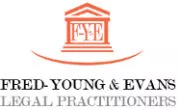Introduction
Upon the outbreak of Covid-19 in Wuhan, China, the World Health Organization (WHO) declared the virus a world health emergency in January 2020. The virus later spread to over 150 countries. The virus made many people to be extremely ill and led to the death of thousands of people. Most countries have closed their borders to prevent arrivals from countries with infected persons, ordered businesses to close and instructed their population to self-isolate themselves in order to break the spread of the virus.
Since 11th March 2020, when WHO announced that the virus is a pandemic, the economy of most countries has been shut down. The pandemic has negative impact on international commerce and trade activities. It has suspended tourism activities, supplies and other global value chains, commerce, financial and stock as well as businesses in many countries. In Nigeria, major cities have been completely shut down and there is fear of an imminent economic recession.
What is Force Majuere?
The concept of Force Majuere is derived from the French legal system. It is an express provision that halts contracts when events occur which make it impossible to continue with the performance of the contract provided such events was unforeseeable and unavoidable.
In Common Law, there is no presumption of force majeure and parties who wish to provide for such exceptions must expressly include them in their contracts. In recent times, force majeure clauses have largely become standard in commercial contracts in England and Nigeria.
Nigerian Courts Decision on Force Majuere Events
In Nigeria, the principle is more commonly referred to as "frustration", and it is more akin to the French than English approach in that it is a principle which can apply irrespective of its express inclusion in a contract.
The Nigerian courts have defined Force Majeure as the premature determination of a contract between parties, lawfully entered into and which is in the course of operation at the time of its premature determination, owing to the occurrence of an intervening event or change of circumstances so fundamental as to be regarded by law as striking the root of the contract and entirely beyond what was contemplated by the parties when they entered into the contract.
The courts have recognized the following situations or events as constituting frustration;
- Subsequent legal changes;
- Outbreak of war;
- Destruction of subject matter of contract;
- Government requisition of the subject matter of the contract; and
- Cancellation of expected event.
Upon the occurrence of a Force Majuere event, either or both parties may cancel the contract or be excused from either part or complete performance of the contract. Such events may include; war, strike, riot, crime, or an event described by the legal term "act of God" (hurricane, flood, earthquake, volcanic eruption, etc.).
Covid-19 as a Force Majuere event in Nigeria
The effects of the Covid-19 outbreak has included government intervention to limit local and international travel, lockdowns in which public and private employees are ordered not to go to work, financial and stock market failures (drastic, historic drops in the prices of financial instruments such as shares, options, futures, bonds, etc.), among myriad other consequences.
For Force Majeure clauses, the determination will be based on the basic expression of the contract. In contracts where the Force Majeure clauses specify "disease", "outbreak of illness", "epidemic" or some other similar term, the current outbreak would likely qualify by virtue of its scale and disruptive effects.
However, where no specific term relating to disease is used, it might still be a valid ground if there is an omnibus term such as "act of God" included. In either case, the fundamental requirements of invoking Force Majeure will still have to be satisfied by proving the following;
- That the outbreak of Covid-19 has occurred out of the control of the parties;
- That it has made it impossible to continue the performance of the contract as usual; and
- That the party invoking the clause has taken all reasonable steps to avoid or mitigate the consequences in which the Covid-19 outbreak will have on the contract. For example in a contract for sale of goods, could the goods be obtained and delivered through another supplier in the buyer's location, thus avoiding the transit restrictions? All options must be considered in light of the terms (express and implied) of the contracts.
Conclusion
It is clear that the doctrine of Force Majuere (and frustration) enjoy judicial recognition in Nigeria. The current global circumstances resulting from the outbreak of the novel Covid-19 are likely to occasion breaches of contract across various industries, making the doctrine a viable tool for businesses to consider in mitigating their business liabilities. Business must continue and at the end of the epidemic, the businesses which will be in stronger position will be those that took swift legal action to secure their interests.
The content of this article is intended to provide a general guide to the subject matter. Specialist advice should be sought about your specific circumstances.



